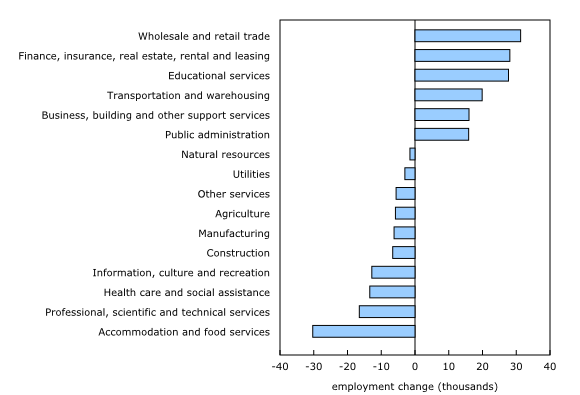'The still low jobless rate suggests the labour market is in decent shape for now': economist

Canada’s job market added 37,300 jobs in January, StatsCan reported Friday, marking the first unemployment decrease since 2022.
In the same month, wage growth saw a slight decrease.
The decrease in unemployment is mostly due to less people seeking jobs, the report said: the participation rate (the number of working-age people who are employed) fell two points to 65.5%, from 65.5% in December.
The results surprised analysts who had predicted an unemployment increase to 5.9%, Reuters reported.
Unemployment rate decrease not the whole story
However, the results should be taken with a grain of salt, says Brendon Bernard, senior economist at Indeed.
“The Canadian labour market kicked off 2024 in familiar fashion, continuing its gradual, but not dramatic cooling,” Bernard said in an email to HR Reporter.
“The result was a fourth consecutive downtick in the overall employment rate. The unemployment rate ticked down slightly, but only because of a slip in labour force participation. The still low jobless rate suggests the labour market is in decent shape for now, but the way things have evolved isn’t great.”

January StatsCan jobs report results “mixed”
Although wage rate growth slowed slightly for permanent employees, dropping from 5.7% in December 2023 to 5.3% in January, growth maintained its year-over-year increase pace of 5.3%.
“Unlike among employment figures, the trends for pay have been strong. Hourly earnings growth chugged ahead […] once again out of step with the otherwise lackluster pace of the Canadian economy,” Bernard says.
“It looks like the tug-of-war between wages and prices has continued to start the year. There was room for wages to catch up somewhat to prices after inflation popped in 2022, without much of a feedback loop. But if pay gains persist at this rate, inflation could linger higher than Canadians, and the Bank of Canada, hope.”
Bernard called the results of January’s jobs report “mixed” since gains only came from part-time positions and the public sector. He did, however, point out the gains in hours worked, which showed a significant monthly increase after stagnating since mid-2023.




